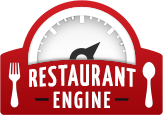Restaurants Struggle to Access Overburdened Loan Programs

Last month, the government announced an aid package to speed relief across the economy, the CARES Act. CARES Act is aimed at providing financial assistance to individuals small businesses including restaurants.
Restaurants can apply for two kinds of loans under the CARES Act. The first is the Paycheck Protection Program (PPP), where the business gets a loan to pay employees. The catch here is that the loan is forgivable so long as the business owner exhausts the full loan amount within eight weeks on payroll, rent and utilities. The application window for restaurant owners opened on April 3, and the window opened for 1099 independent contractors on April 10.
The second relief category is the Economic Injury Disaster Loan (EIDL) Program to sustain business operations. The U.S. Small Business Administration opened its application window for EIDL’s low-interest, non-forgivable loans in early March.
There is a total budget exceeding $350 billion allocated for businesses under these two schemes. Congress is seeking additional funding. The U.S. Chamber of Commerce is urging Congress to give a small-business infusion due to the overburdened PPP system. Most restaurateurs can apply online for these loans directly with their existing bank.
Still Awaiting Payment
Millions of restaurateurs have applied for aid. It is still to be verified how many have received funds and how much has been paid. Per a report by the National Federations of Independent Business (NFIB), less than 4% of applicants had received funds as of last weekend. The Washington Post on April 10, 2020 ran another story confirming that very few applicants had received the loans for which they have applied.
A restaurant owner told News & Observer that she was facing problems accessing North Carolina’s unemployment page to apply for the CARES act. Large numbers of concurrent applications crashed the website. This has led the restaurant owners not feeling confident about the aid process, and a group has formed requesting the North Carolina General Assembly to assist with a state aid program to help restaurants survive during this interim time period.
A restaurant owner who spoke to News & Observer, Sophie Woo, said that her national bank did open its application page until Saturday, April 4, 2020, which was one day later than the government’s application deadline. She claims that by Sunday, the bank was not accepting any more applications as it had already exceeded its funding budget. Woo further went on to comment that providing a stimulus to turn the loan into a grant if the business uses it for payroll, is tantamount to the government asking the restaurant to function as an employment office. She did not mind applying only if she could get access to the benefit.
Lynn Minges, North Carolina Restaurant and Lodging Association leader, feels that even if the government solved every problem with PPP and EIDL applications today, the money allotted would run out even before all eligible businesses could apply. Many restaurateurs have bemoaned the difficult application process with the regional banks with whom they have existing banking and lending relationships.
Restaurateurs Write to Congress
On April 6, 2020, members of the Independent Restaurant Coalition (IRC) told The Washington Post that CARES act is not enough for the restaurants to survive. Commenting on the PPP difficulties, the association’s members informed The Washington Post that the program would not be sufficient for the restaurants that are just delivering food, or are completely closed. Again, the funds provided under PPP forgivable loans have to be used to pay the employees at their pre-coronavirus pay rates. This leaves only 25% for mortgage, utilities and rents. According to IRC member Naomi Pomeroy, “We don’t want to get into a situation where we’re paying our staff and then we’re [forced] to lay them off because we’re still not open, and then rehiring them again after that.”
The IRC has written a letter to the Congress requesting amendments and aids required by the industry to revive. Some recommendations made by the IRC regarding PPP loans are:
- Increase the maximum loan amount to three months from the day the restaurants are allowed to open and function at “full capacity.”
- Reinstate the $500 million gross revenue cap that an earlier version of the PPP had in place. This was to limit large organizations from applying under the program designed for smaller businesses.
- Fearing that before all business could apply for the funds and the $350 billion would run out, the IRC has requested for increased funding.
- Extend the repayment term from two years to 10 years.
Andrew Rigie, NYC Hospitality Alliance Executive Director, explains that CARES Act does not account for the full reopening costs that restaurants will have to incur. He claims that the CARES act only provides for restaurants to cover a portion of their losses during the time that they are closed. But once the restaurants are allowed to open, they will have to bear vendor costs, rents, and maintenance, all of which will require additional capital. Rigie therefore supports an additional request for a new “Restaurant Stabilization Fund” specifically allocated to dining establishments.
Photo by Nik Shuliahin on Unsplash


Leave a Reply